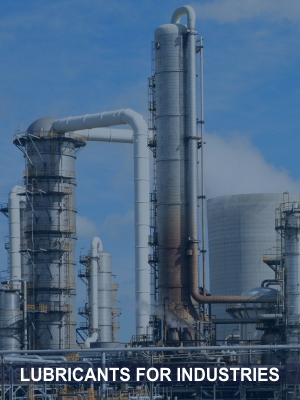Glass Industries
In the glass industry, lubricants play a crucial role in various processes, including glass forming, cutting, grinding, and molding. The selection of the appropriate lubricant depends on the specific application and requirements. Here are some common types of lubricants used in the glass industry:
Graphite Lubricants:
- Graphite-based lubricants are commonly used in glass forming processes. They provide excellent lubrication and can withstand high temperatures.
- These lubricants are often applied to the mold or forming equipment to reduce friction and prevent sticking.
Molybdenum Disulfide (Moly) Lubricants:
- Molybdenum disulfide is a solid lubricant that can withstand high temperatures and pressure. It is often used in applications where cleanliness is crucial.
- Moly lubricants are suitable for both cold and hot glass forming processes.
Boron Nitride Lubricants:
- Boron nitride is a lubricious material that can withstand high temperatures and provides excellent release properties.
- It is often used as a dry lubricant in applications where contamination from traditional lubricants is a concern.
Mineral Oil-Based Lubricants:
- For cutting, grinding, and machining processes, mineral oil-based lubricants are commonly used. These lubricants help reduce heat and friction during the cutting or grinding of glass.
- Care should be taken to ensure that the lubricant does not contaminate the glass surface in applications where cleanliness is critical.
Water-Soluble Lubricants:
- Water-soluble lubricants are used in applications where easy cleanup is important. These lubricants can be mixed with water and provide effective lubrication during various glass processing operations.
- Water-soluble lubricants are often preferred when avoiding oil-based residues is essential.
It's important to note that the choice of lubricant depends on the specific requirements of the glass manufacturing process, the type of glass being produced, and any environmental or cleanliness considerations. Manufacturers should follow the recommendations provided by lubricant suppliers and equipment manufacturers for optimal performance and efficiency. Additionally, adherence to safety and environmental regulations is crucial in the selection and use of lubricants in the glass industry.
Technical Data Sheet
SWIFTPLUS -2


